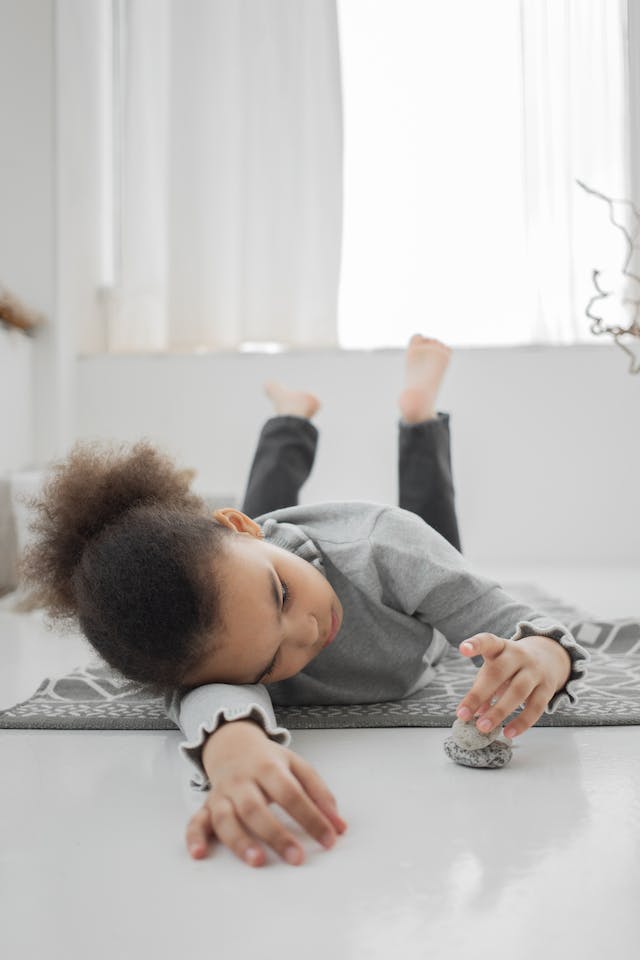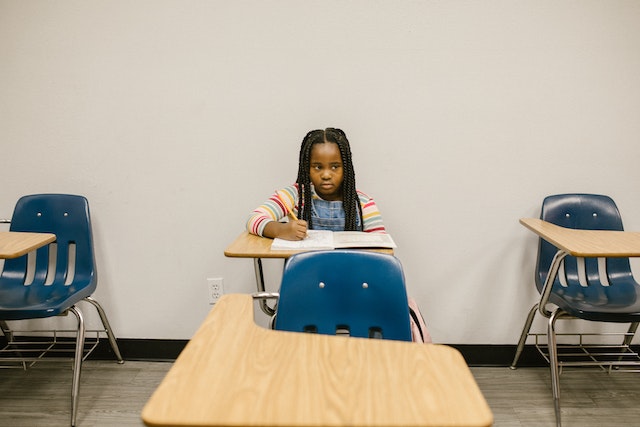The countdown has officially begun with the end of summer in our sights, giving way to the dawn of a new school year. With the excitement of back-to-school shopping and all that comes along with getting prepared for the new year, there is something else that children often actually struggle with, anxiety.

Children of all ages can experience going back-to-school anxiety. According to the Centers for Disease Control and Prevention, (CDC), worries and fears are typical in childhood, but when those fears become “persistent or extreme” and interfere with daily life, it’s more likely to fall under the category of anxiety. Statistics show that 9.4 percent of children between the ages of 3 and 17 were diagnosed with anxiety between 2016 and 2019, a percentage that is growing yearly.
“If anxiety is not recognized and goes untreated, it can have effects on all aspects of a child’s life – like school performance, ability to socialize, and general well-being,” child psychiatrist Willough Jenkins, PhD, told PopSugar in a recent interview.
Of course, parents should be on the lookout for both physical and non-physical signs that their child is stressed about school or even going back to school.
“Usually, the biggest red flag about school anxiety is school refusal or school avoidance,” Joon Care chief clinical officer Amy Mezulis, PhD, said to PopSugar in the same interview. “But this can manifest in subtle ways and show up the first few times as mystery headaches, stomachaches, or other symptoms that seem like illness and legitimate reasons to miss school.”
So, just how can parents help their children with back-to-school/school anxiety? Keep reading for a few tips from the experts.

Understand the source.
“It is important to understand the source of the anxiety; if there is something happening at school, such as bullying, then you need to deal with that directly,” Dr. Mezulis suggested. “Often there is not — the child is simply anxious — but we don’t want to miss a solvable problem.”
Regularly attend school.
“It is very important that your child returns to school even if they are feeling anxious,” Dr. Jenkins shared. “School anxiety is reinforced the longer a child stays out of school, so this is another area where it is necessary that parents intervene.”
Don’t accidentally reinforce.
“If your child is not able to attend school, ensure [the] home is comfortable,” Dr. Jenkins said, “but not unintentionally reinforcing the habit of staying home (such as having unlimited snacks, video games, or time with parents).”
Have a few dry runs.
“For children new to school, we recommend doing dry runs of school days to familiarize the child with the new routine,” Dr. Mezulis suggested.
Hop in the car and go for a ride. Drive to school, get out, walk up to the front door, etc. This will get them used to the idea that this routine is coming and that there is nothing to be afraid of or anxious about.

Set small goals.
“Small goals might be things such as handing your homework to the teacher when you walk in the door; identifying what you’re going to do at recess (play on the bars, walk three laps around the playground); one social activity (say hi to a certain kid),” Dr. Mezulis explained to the outlet. “Something that is small and obtainable can build confidence.”
Offer a small reward.
“I don’t recommend bribing children to go to school, but having a small reward at the end of the week — a family movie night or going out for ice cream — can be a nice way to celebrate your child pushing through the anxiety and being successful with school attendance that week,” Dr. Mezulis said.
Develop an anxiety toolbox.
“It can be a physical box where they put things that help them with anxiety,” Dr. Jenkins suggested. “The box may include a family photo, a nice-smelling soap, a puzzle, and reminders of coping skills like box breathing or a grounding technique.”
Having something tangible that enacts the other senses will unquestionably help to curb anxiety, especially if the toolbox holds something that makes the child smile.
Added bonus: Acknowledge your child’s anxiety and be vocal about your understanding and show them some empathy.
By having these few tips in your parenting toolbox, you will be able to help your child start the upcoming 2024-2025 school year on the right foot. You will also have an arsenal of help for the entire year!
Photo: Adobe Stock Images; Pexels.com







